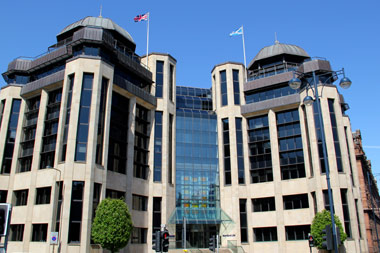Standard Life boss remains concerned about Scottish independence

Edinburgh-based financier plans to move its operations to England if Scots vote vote to separate from the United Kingdom
Jermaine Haughton
Insurance and pensions group Standard Life Plc has warned Scottish voters that leaving the United Kingdom could put the nation in economic and financial jeopardy. While announcing a 12% rise in first-half operating profits to a pre-tax £339 million yesterday, Standard Life aired concerns that it has failed to receive clarity on the major economic and financial framework that Scotland would have in the event of a Yes win, such as which currency the country would use, related regulatory matters and whether EU membership would be viable.
The long-awaited referendum will take place on 18 September. Following last night’s TV debate between SNP leader and Scottish-autonomy supporter Alex Salmond, and former Labour chancellor and No-campaign leader Alastair Darling, anticipation is starting to peak.
Standard Life’s half-year accounts included a statement on current risks that are affecting the firm, reiterating worries it first issued in a financial statement of February. The firm noted that amid the independence debate, the most pressing unclarified or unresolved risks to its operations are:
The currency that an independent Scotland would use
Whether agreement and ratification of an independent Scotland’s membership to the EU would be achieved by the target date (currently 24 March 2016)
The shape and role of the monetary system
The arrangements for financial services regulation and consumer protection in an independent Scotland
The approach to individual taxation, especially around savings and pensions, as a consequence of any constitutional change
Standard Life chief executive David Nish told the media: “In making our comments, we were not seeking to make a political comment. It was very much round about how we think about factors that impact our business.”
In May, the insurer drew up contingency plans to potentially move some operations out of Scotland if independence goes ahead – putting 5,000 jobs in the nation immediately at risk. Standard Life manages more than £254.1 billion (€319.3b) of assets, with around 90% of its clients based outside Scotland. “What the individual wants to know is the fine print and the nature of these big constitutional matters,” said chairman Gerry Grimstone at the time, but acknowledged: “you don't get to the fine print at this stage in these processes. We would not hesitate for example to move parts of our operations to England, where the majority of our customers are located, or move the registration of our funds.”
He added: “In financial services, continuity is vital, and customers won’t tolerate uncertainty. So we need to be ready to move quickly if the need arises. We should not, and would not, attempt to influence how anyone should vote.”
However, while Standard Life bosses remain wary of the prospect of independence, other finance leaders have written to the FT to express their support for the cause. A joint letter by seven business leaders – including former chairman of the Scottish Mortgage Investment Trust, Sir Donald MacKay; former RBS chairman, Sir George Mathewson and, significantly, Standard Life bank founder Jim Spowart – claimed that a UK-wide vote on EU membership is a greater threat to the Scottish financial and business industry than independence.
“There is a positive outlook for the sector because we believe the likelihood of a currency union is strong,” the industry experts said. “It is not only in the best interests of Scotland and the rest of the UK, but of our industry.”
They concluded: “The financial sector in Scotland will always prosper because we have the skills, the talent and the connections that are needed to thrive.”
Find out more about the issues raised in this article in this forthcoming CMI seminar on Strategy and Business Development – a session for experienced scenario planners.
Image of Standard Life headquarters courtesy of the Wikimedia Commons, via Wikipedia

Press & Media Enquiries
For more information or to request interviews, contact CMI's Press Team on 020 7421 2705 or email press.office@managers.org.uk


